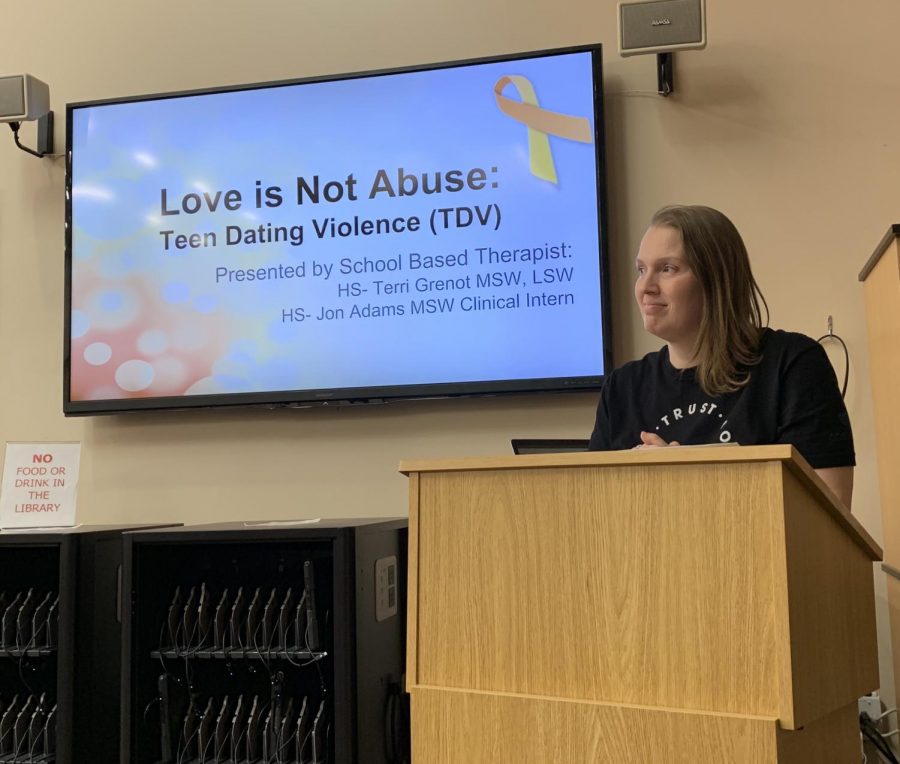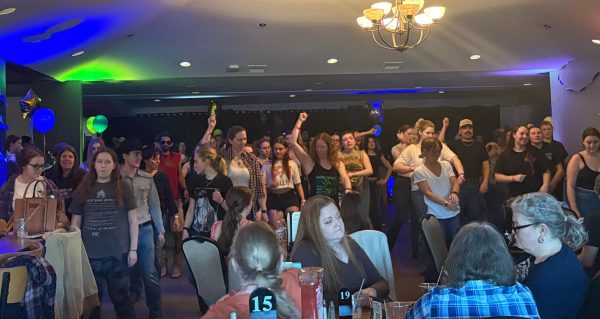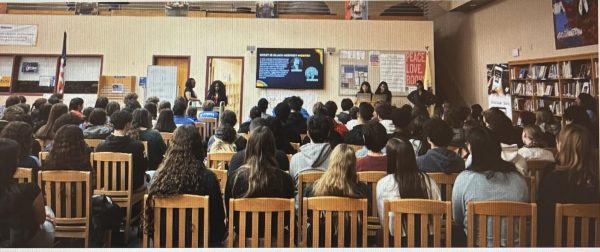School Based Talks About Dating Violence
With February being Teen Dating Violence Awareness Month, School Based staff hosted a library showcase to inform staff and students of the issue.
Presenting the showcase was Terri Grenot, social worker of School Based, and Jon Adams, a clinical intern.
The purpose of the presentation was to spread awareness to teens to be alert for the signs of an unhealthy relationship and the steps to get out of it.
The presentation raised crucial questions, such as: What is consent? The presenters answered with a more elaborate concept than just a simple definition and the audience gave input as well to what they believed the term meant.
Grenot and Adams opened their presentation with the title “Love is Not Abuse” on the screen and the song “Warrior,” by Demi Lovato, playing while staff and students filled into their seats.
Teen Dating Violence (TDV), Grenot and Adams said, “Is a pattern of behavior that includes physical, verbal, emotional, sexual abuse, and/or digital abuse used by a person in an intimate relationship to exert power and control over another.”
According to Grenot, “In a nationwide survey, 9.4% of high school students report being hit, slapped, or physically hurt on purpose by their boyfriend or girlfriend in the 12 months prior to the survey.”
The presentation was not all statistics, however. Grenot and Adams also played a few videos about TDV from the One Love Foundation showing scenarios of teen dating violence and the cycle in which it happens.
According to Grenot, TDV has four phases: First Honeymoon, Tension Building, Explosion Phase, and Second Honeymoon Phase. The relationship starts out sweet, and gradually escalates.
She said, “It’s an endless cycle that’s difficult for the victim to get out of.”





